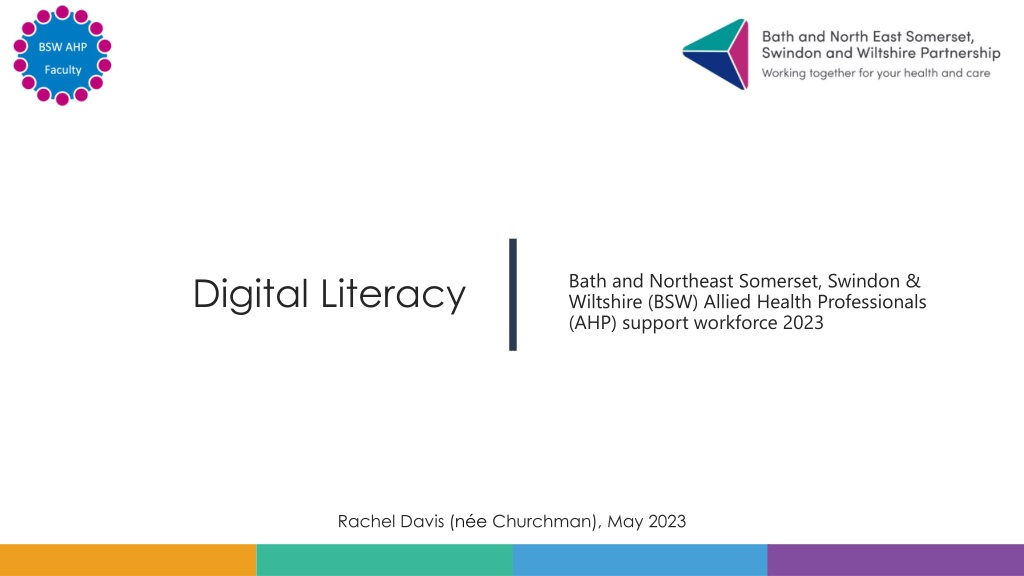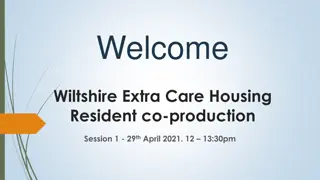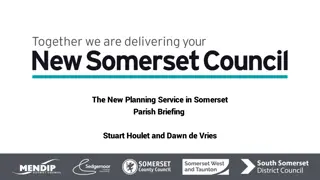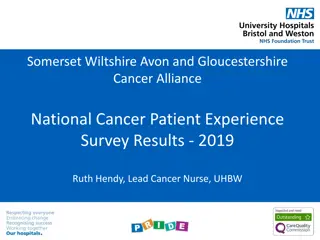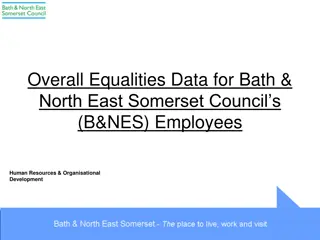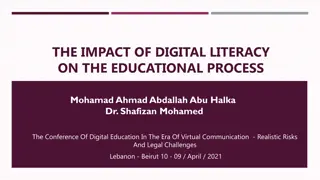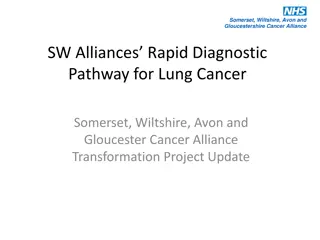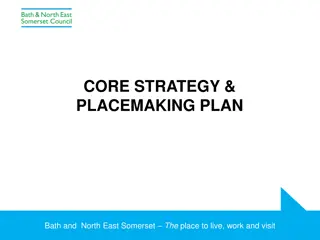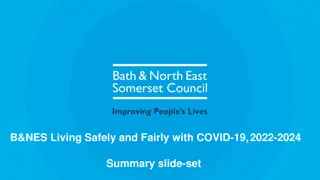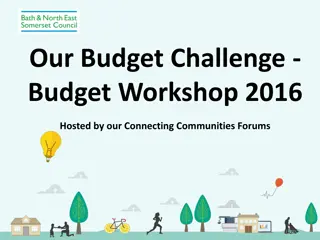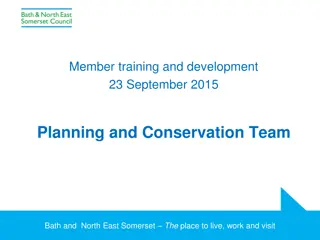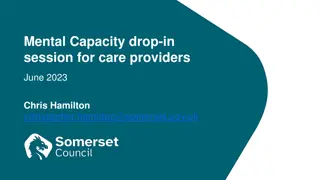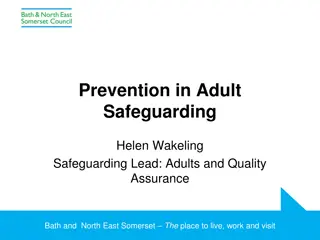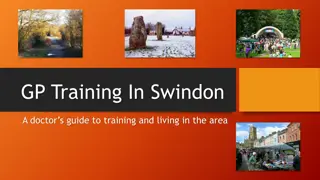Digital Literacy Survey Results in Bath and Northeast Somerset, Swindon & Wiltshire Region
The digital literacy survey conducted in the Bath and Northeast Somerset, Swindon & Wiltshire region revealed insights into the current skills of Allied Health Professionals (AHP) support workers. The survey aimed to assess digital competencies across various domains and organization affiliations, highlighting the need for training and resources to enhance digital health literacy. Results indicated varying levels of digital proficiency among participants from different healthcare organizations.
- Digital literacy
- Survey results
- Allied Health Professionals
- Training resources
- Healthcare organizations
Download Presentation

Please find below an Image/Link to download the presentation.
The content on the website is provided AS IS for your information and personal use only. It may not be sold, licensed, or shared on other websites without obtaining consent from the author. Download presentation by click this link. If you encounter any issues during the download, it is possible that the publisher has removed the file from their server.
E N D
Presentation Transcript
Bath and Northeast Somerset, Swindon & Wiltshire (BSW) Allied Health Professionals (AHP) support workforce 2023 Digital Literacy Rachel Davis (n e Churchman), May 2023
Health Education England (HEE) defines digital literacy(-ies) as: the capabilities that fit someone for living, learning, working, participating and thriving in a digital society.
NHS England: A Digital Framework For Allied Health Professionals
Aim: To record the current digital literacy skills of our BSW AHP support workers and identify any themes in competency.
The Self-Assessment Survey: Domain 1: General Digital Skill Domain 7b: Personal Professional Asset and Resource Digital Skills Domain 9: Digital Therapeutics Skills
WHICH ORGANISATION DO YOU WORK FOR? Sample: HCRG (formerly Virgin Care) 2.8% (3) Swindon Borough Council 2.8% (3) South Western Ambulance Service NHS Foundation Trust (SWASFT) 0.0% Avon and Wiltshire Mental Health Partnership Trust 2.8% (3) 109 fully completed surveys revealed that samples were acquired from 7 out of the 8 organisations within BSW participated, these include: Wiltshire Health & Care Salisbury Hospital 19.3% (21) Royal United Hospitals Bath Wiltshire Health and Care 48.6% (53) Great Western Hospital, Swindon Salisbury Hospital Great Western Hospital, Swindon 12.8% (14) Avon & Wiltshire Mental Health Partnership Trust HCRG Swindon Borough Council Royal United Hospitals Bath 11.0% (12)
WHAT IS YOUR CURRENT BANDING? Other (please specify): 0.0% 2 5 10.1% 11.0% 4 31.2% 3 47.7%
Training Electronic Health Record (EHR) Apps Capturing patient data Themes
DO YOU HAVE KNOWLEDGE AND UNDERSTANDING OF THE LOCAL SUPPORT AND TRAINING RESOURCES AVAILABLE TO ENHANCE DIGITAL HEALTH LITERACY FOR BOTH PROFESSIONALS AND FOR THE PUBLIC? Training: 5 - Excellent knowledge and understanding 2.8% N/A (please explain): 0.9% 1 - No knowledge and understanding 15.0% Digital platforms to roll out training would be beneficial and preferable to the majority of our workforce (over 85% reported average or above ability of use). 4 - Good knowledge and understanding 17.8% Around a quarter of our staff require some additional training, likely face to face to get up to par. 51% reported less than average knowledge and understanding of local training resources available to enhance digital health literacy of professional and public. 3 - Average knowledge and understanding 27.1% 2 - Limited knowledge and understanding 36.4%
Electronic Health Records (EHRs) 79% felt able to document to their organisation's standards on EHR. 8 % unable to do so to an average ability 7 % reported not being able to document on EHRs at all 6 % reported that they have no requirement to digitally record due to their workplace using paper notes.
DO YOU HAVE KNOWLEDGE OF, AND THE ABILITY TO DEMONSTRATE, SIMPLE COMPUTER SKILLS? FOR EXAMPLE FAMILIARITY WITH BASIC COMPUTER FUNCTIONS (EMAIL, WEB- BASED SYSTEMS, VIDEO COMMUNICATION SOFTWARE, MICROSOFT OFFICE) AND PRACTICAL USE OF APPROPRIATE DIGITAL DEV 2 - Limited knowledge and ability 7.3% 5 - Excellent knowledge and ability 14.7% 3 - Average knowledge and ability 26.6% 1 - No knowledge and ability 0.0% 4 - Good knowledge and ability 51.4% N/A (please explain): 0.0%
NHS app, mHealth, Hope For The Community, MDCalc, Keele Pain Recorder (e.g. IAPT, Woebot Health, Hub for Hope). Healthcare Apps: Physical health Less than half, (48%), of our BSW AHP support workforce participants felt they have average or above ability to signpost our patients to physical health apps. Mental health - One in four adults experiences at least one diagnosable mental health problem in any given year [NHS England], and yet almost half of participants, (47%), reported no knowledge or understanding, or use of this field of digital therapeutics. Training is required for being able to identify clinically assured digital content, as 6% reported no ability and 18% reported limited ability. There was also a discrepancy around those reporting being able to identify clinically assured resources and those that can signpost to clinically assured resources.
Capturing Patient Data: The area for most development Handheld devices: e.g. tablet, phone, mHealth wearables: e.g. KiActiv device Medical devices: e.g. blood pressure or blood glucose monitoring, pulse oximeter Digital cameras: e.g. photos of wounds in the community to upload to EHR for referral Remote monitoring: e.g. clinical notes, test results, virtual wards Image exchange portal e.g. sending/receiving an image with another hospital for a transferred patient. Remote working: e.g. home or community working
How well can you view and / or capture patient data at the point of care via: 120 100 80 60 N/A Very well Quite well Average ability Not very well Not at all 40 20 0 Hand held devices for patient-reported outcome measures and/ or patient experience data mHealth wearable technologies for personal health and exercise data tracking (e.g. KiActive) Connected medical devices to measure patient physical parameters (e.g. Blood pressure or blood glucose readings) Digital camera technology to facilitate medical image capture and recording in EHRs Remote monitoring of patient EHR data (clinical notes, test results) Use of image exchange portals Remote working using laptops to record your intervention
Key take-aways: Overall digital literacy is actually already relatively high in at least three quarters of our AHP support workforce. There is also already a majority proportion of our AHP support workforce with a positive attitude towards further enhancing their digital literacy and digital innovation in their field of work. There is a big disconnect of awareness around what digital innovation is available and happening in the different allied health professions. There is also a lack of knowledge of the training available and our workforce hearing/knowing about it and how/where to access it and find out more. Digital platforms for training are the majority preference, these largely already exist and so it should be a simple piece of work around our signposting to the available resources.
What you can do Status quo Educate yourselves on what digitally innovative practice is happening in your profession and how you can get involved Progress SHARE updates with your colleagues Work with your education & training departments to ensure clear signposting for our training resources Advocate for our support staff having protected time and access to fulfil their digital training needs. Challenge and address why some of us still aren t using electronic health records Utilise clinically assured health apps in your professions Continue to lead by example
Full report and anonymised data available via: https://wiltshirehealthandcare.nhs.uk/about- us/freedom-of-information/ or whc.legal@nhs.net Any questions? Contact: Rachel.Churchman@nhs.net : Rachel.Davis@ghc.nhs.uk
